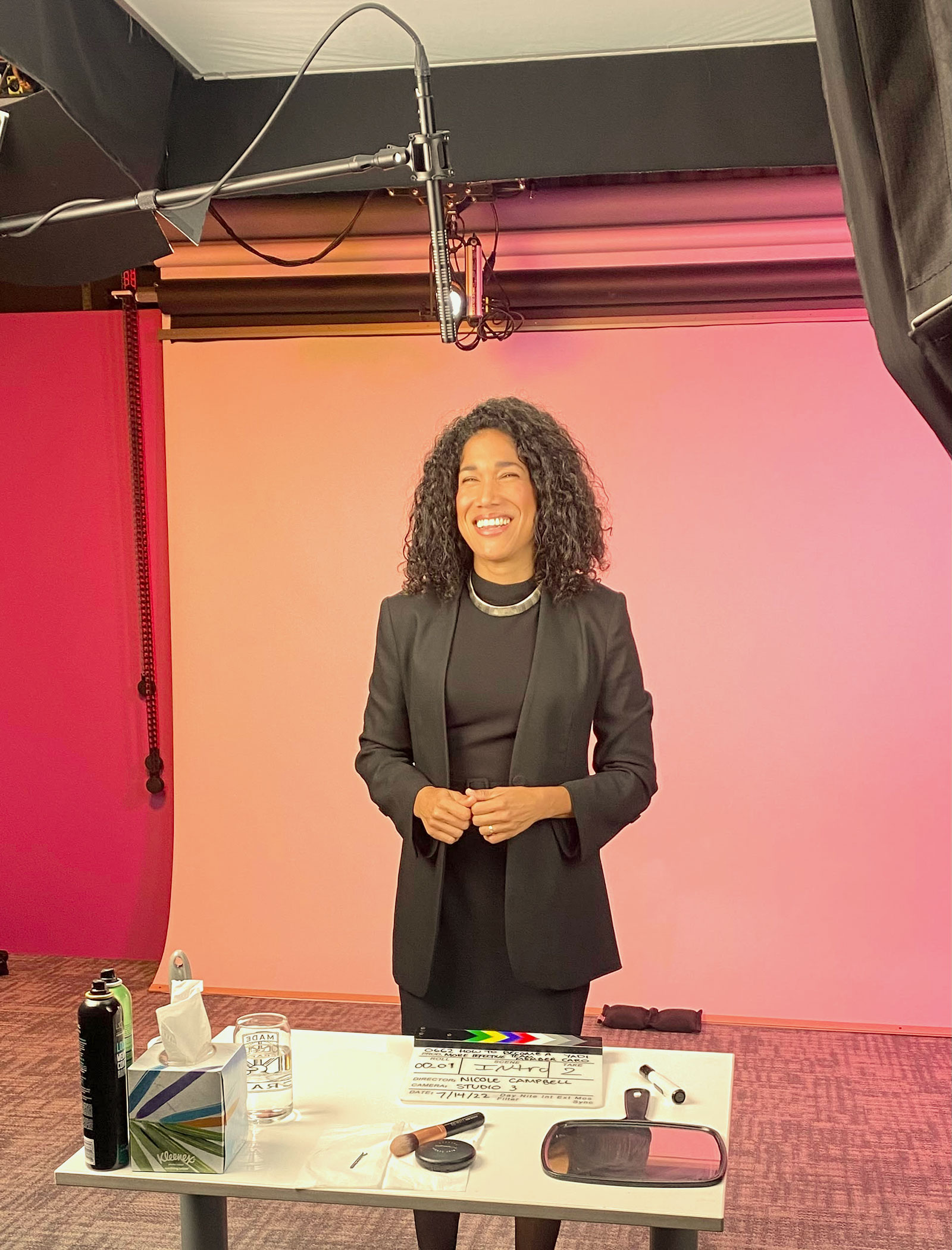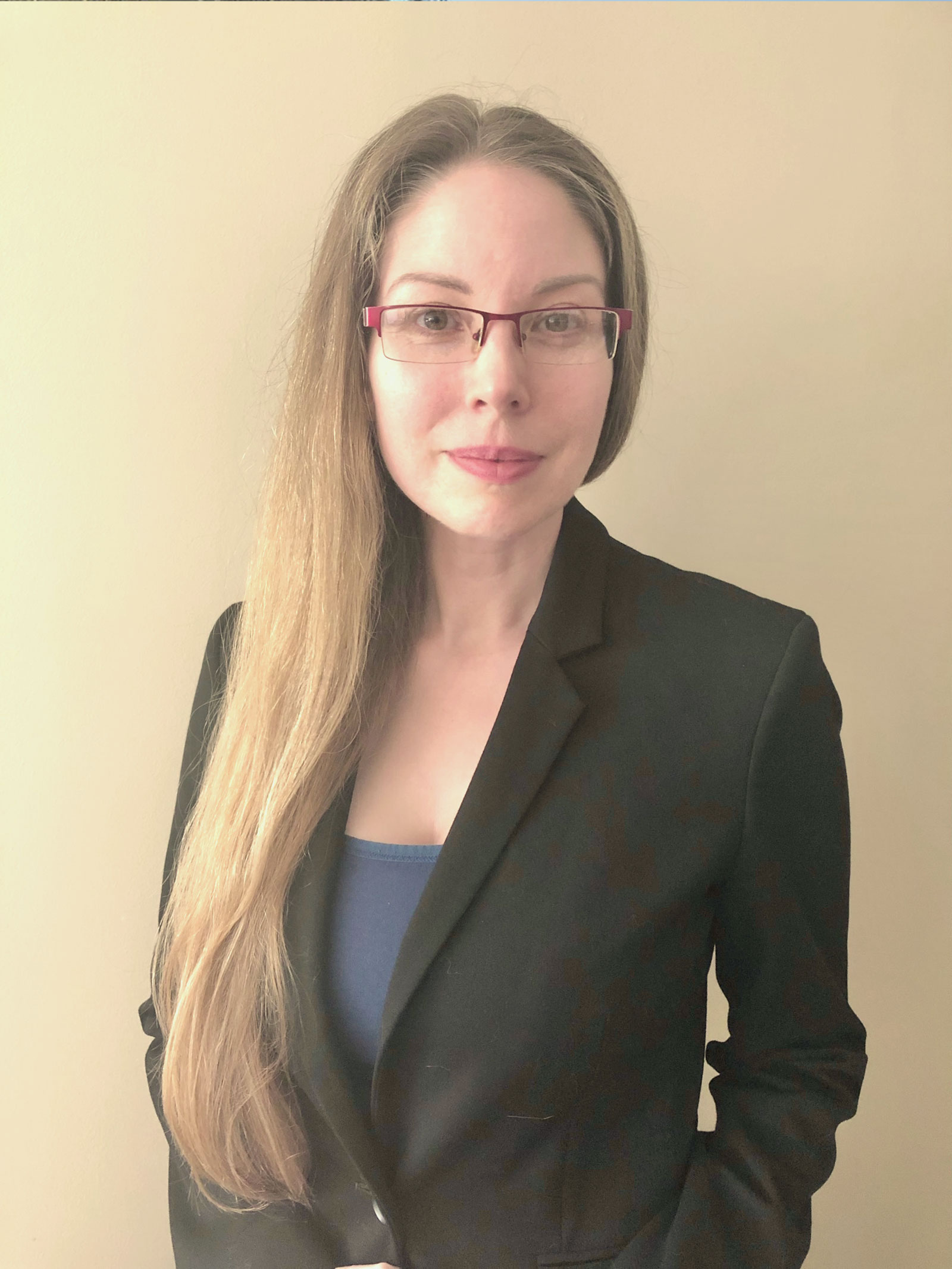On this page
Alumni of the master’s program in industrial-organizational psychology at Harvard Extension School work across a variety of roles and industries. We talked to three alumni about how their career paths in technology and finance leadership. They provide insights into their work and how the IOP degree program helped them meet their goals.
Meet Our Alumni:
Yadi Caro

What is your current career?
I am an agile coach for various military organizations. I coach groups of scrum masters and together we support multiple tech teams to help them get organized, prioritize their work, collaborate effectively, and implement practices to increase their productivity and performance.
I also host a podcast, “Hardcore Soft Skills,” where I discuss specific skills with well-known experts and give actionable advice to listeners.
What does a typical day look like for you?
A typical day for me includes engaging with the scrum team to define our goals for the day, providing coaching to a team about how to manage their product backlog, facilitating a retrospective with another team, attending a meeting in support of an important project, and meeting with the general to give updates about our progress. This can all happen in one day!
I really enjoy the ability to work with multiple people and be a servant leader for the military and civilians in the organization.
What impact has your IOP degree had on your career?
Since I started the degree, I immediately started noticing the results. I was able to apply the lessons I learned in classes like Motivation and Coaching in the Business Landscape on how to engage teams effectively.
I also learned through IO Psychology and Organizational Behavior classes the skills to help me become a better manager. In Negotiation class, I applied what I learned to obtain a new role with better compensation.
While I have remained in the field of consulting in the defense industry, I have been promoted to higher roles. I believe this degree has given me the confidence to continue growing in my career.
What did you find in the IOP master’s program at Harvard Extension that you couldn’t have found elsewhere?
Growing up in Puerto Rico, going to a university on the US mainland seemed unreachable at the time. When I was able to move to the states and complete my first master’s degree in Florida, I was committed to continue achieving graduate education whenever the opportunity came up.
When COVID-19 hit, I was living in Germany and, like many people, I was eager to finally achieve the dreams I held. In my case, earning a master’s in IO Psychology and attending a prestigious school were both important goals. As I explored the requirements, the flexibility, and impressive curriculum HES had to offer, I jumped right in.
What advice would you give to yourself or to future students before beginning this journey?
Managing your time effectively and committing to completing work in a timely manner are essential keys to success. I am a mother of two young boys, a wife, have a full-time job, and produce my podcast. While I stressed out initially about my ability to complete the class work, I realized if I simply started assignments early on and dedicated at least an hour per day, I would be able to complete the work, instead of trying to rush to get it done at the last minute.
Using resources like the Writing Center and orientation available from Hollis were a life saver! Also, interacting with classmates through WhatsApp groups was a great stress relief.
As I get closer to completing my degree, I am focusing on truly enjoying my classes and approaching these experiences with the same curiosity my kids have toward their own education.
Rose Nyte

What is your current career?
I work for PayPal in Developer Productivity Engineering as Senior Director of Platform Engineering.
Formerly, I was a senior director, overseeing a team of 85 employees, building software and platforms that accelerate the work of 6,000 PayPal developers.
What does a typical day look like for you?
Meetings! Balancing developing the careers and skills of my direct reports, meeting with them to give them guidance and ensure that the decisions they’re making align with our greater goals.
I also work toward building relationships across the enterprise, reassessing my strategies for each of my products, listening to my developer-customers, and helping my peers.
What impact has your IOP degree had on your career?
My Harvard degree likely helped me get my job at PayPal, because I work in a company where most people hold Ivy League degrees or have achieved great things as entrepreneurs.
More than any of those things, though, I think my degree gave me the confidence that I know how to be a good leader, and can teach those skills to others, effectively becoming a force multiplier for great people-focused leadership.
Harvard Extension was the only Master’s program in industrial-organizational psychology that incorporated Harvard’s cutting edge leadership perspectives which are so focused on the human, psychological aspect of leadership.
Master of Liberal Arts (ALM) in the field of Industrial-Organizational Psychology, ’22
What did you find in the IOP master’s program at Harvard Extension that you couldn’t have found elsewhere?
I love Harvard. The school’s motto, “Veritas” holds much meaning for me, that the school’s mission is to seek truth and help its students have that curiosity that is unencumbered by personal bias.
Harvard’s IOP program was the best in the world, in my opinion, because it incorporates modern leadership concepts that have been proven to work at the most forward-thinking companies with the happiest employees, like Spotify, Google, and even my own former company, World Wide Technology.
Concepts of emotional intelligence, mindfulness and self-awareness, humility and knowing yourself as a leader, grounding your leadership stance in your own unique story and gifts, were combined with practical knowledge of how to inspire and motivate and organize. Also, data! I learned how to gather meaningful data to help me make decisions as a leader, and how to interpret and assess the quality of other people’s research.
What advice would you give to yourself or to future students before beginning this journey?
Firstly, take this program because you want to learn and grow — not to just nab a Harvard degree. It can be a transformative experience, if you put the work in and are willing to change.
Secondly, take classes that will help you get to know yourself more. I took a class in the religious studies area called “Mindfulness, Meaning, and Resilience” taught by Chris Berlin and it was amazing. I also absolutely loved the classes in Purpose-Driven Leadership, which put you into cohorts and lead you through introspective journeys.
Thirdly, make sure you know how to demonstrate critical thinking in your writing by using the resources Harvard makes available. You cannot just regurgitate the lectures in your papers; you have to show you’ve thought about the readings and have your own opinions — and it’s a great way to improve your overall ability to influence, persuade, and lead others.
Lastly, leverage your RAs! The RA sessions are great for helping you nail your grades. I graduated on the Dean’s list in large part due to making good use of RA feedback.
Louis Kay
What is your current career?
I am currently the chief financial officer at a metals and mining company. My role involves overseeing the financial health and strategic planning of the organization, ensuring sustainable growth and profitability in a highly dynamic and capital-intensive industry.
I lead efforts in financial planning, risk management, and capital markets strategy, with a focus on aligning the company’s financial objectives with its operational and long-term goals. This includes managing complex financing structures, optimizing cost efficiencies, and fostering relationships with stakeholders to maintain trust and transparency in all financial dealings.
Beyond financial oversight, my role requires a deep understanding of the mining sector, including market trends, commodity price volatility, and the global shift toward sustainability. I actively contribute to strategic decisions around project investments, operational expansions, and ESG initiatives, ensuring the company remains competitive while adhering to responsible mining practices. I aim to drive value creation and contribute to the company’s resilience in an evolving economic landscape.
What does a typical day look like for you?
A typical day as CFO is a dynamic blend of strategic planning, financial analysis, and stakeholder engagement.
My mornings often begin with reviewing market updates, commodity price trends, and key financial metrics to assess their impact on our operations and performance. I spend time analyzing financial reports, ensuring accuracy in projections, and aligning budgets with strategic priorities. Regular meetings with functional groups such as finance, accounting, operations, and sustainability, are critical to understanding the operational landscape and aligning financial strategies to support their goals.
The rest of the day is often devoted to high-level decision-making and external engagements. This might include discussions with stakeholders, partners, and financial institutions to update them on the company’s performance and address funding requirements.
Since the mining industry is both global and highly regulated, staying ahead of compliance standards and economic developments are important. My role requires a balance between focusing on immediate challenges and steering the company toward long-term success.
What impact has your IOP degree had on your career?
My degree equipped me with sharpened problem solving and critical thinking skills. In my role, adaptability and the ability to respond to changing market dynamics are essential skills.
What did you find in the IOP master’s program at Harvard Extension that you couldn’t have found elsewhere?
HES’ IOP master’s program offered a distinctive blend of psychology and organizational management. Its academic rigor and emphasis on applying psychological principles to real-world business challenges set it apart.
What advice would you give to yourself or future students before beginning this journey?
I would advise myself and future students to embrace a mindset of curiosity and adaptability. The learning curve in any transformative experience can be steep, but staying open to new perspectives and challenges will make the process rewarding.
Take the time to reflect on your goals, both personal and professional, and identify areas where you want to grow. Set clear intentions for what you hope to gain from the journey, but remain flexible enough to seize unexpected opportunities for learning and connection.
Another key piece of advice is to invest in building relationships. Whether it’s with peers, mentors, or collaborators, the people you meet along the way will be instrumental in shaping your experience. Approach every interaction with authenticity and a willingness to contribute.
Lastly, don’t be afraid to step outside of your comfort zone. The most valuable growth often comes from pushing past familiar boundaries and taking calculated risks. Remember that every challenge is an opportunity to evolve.

